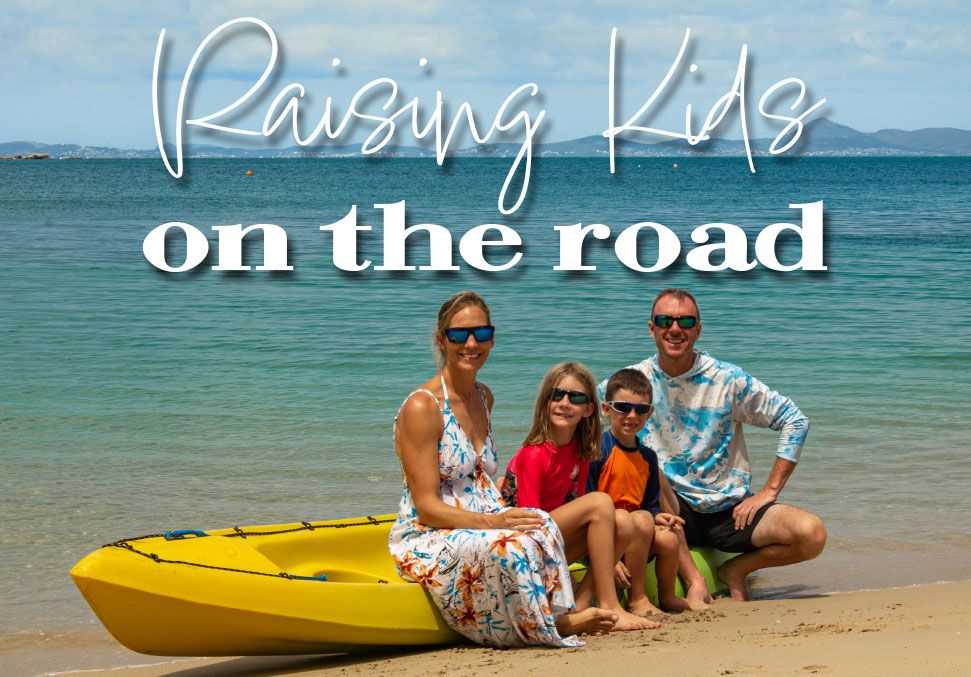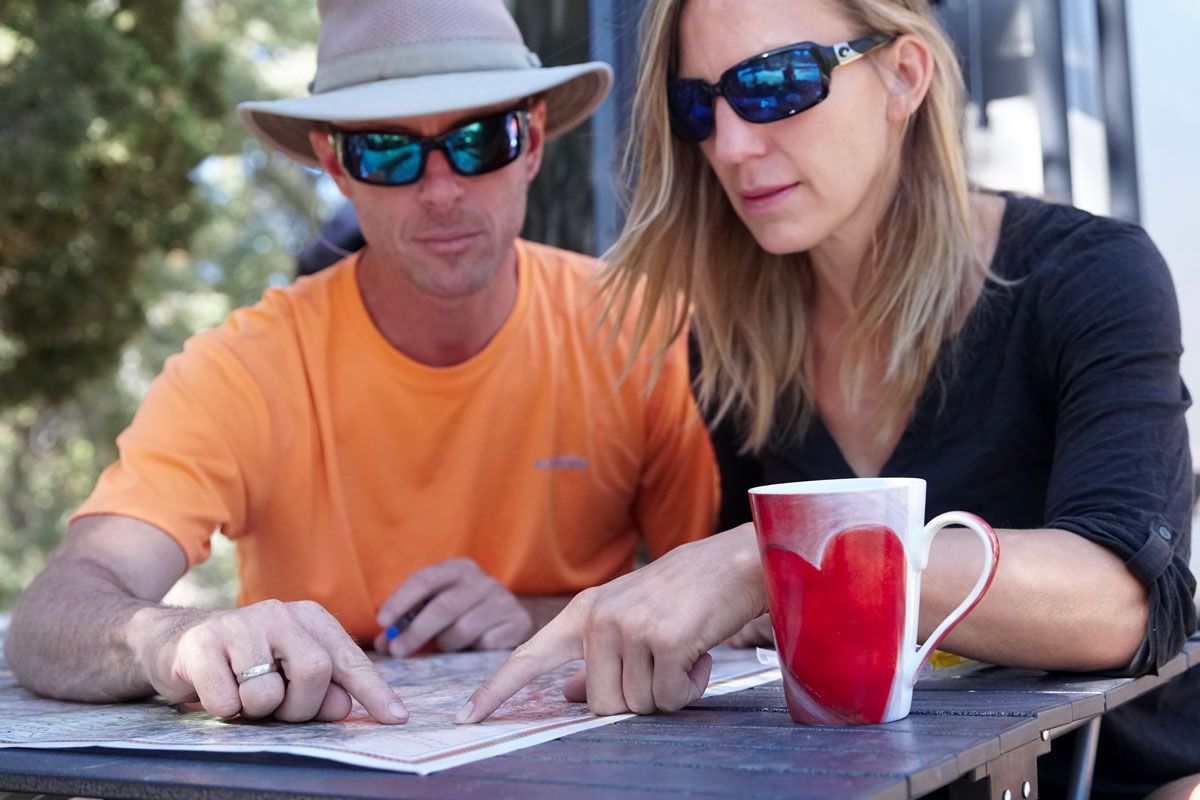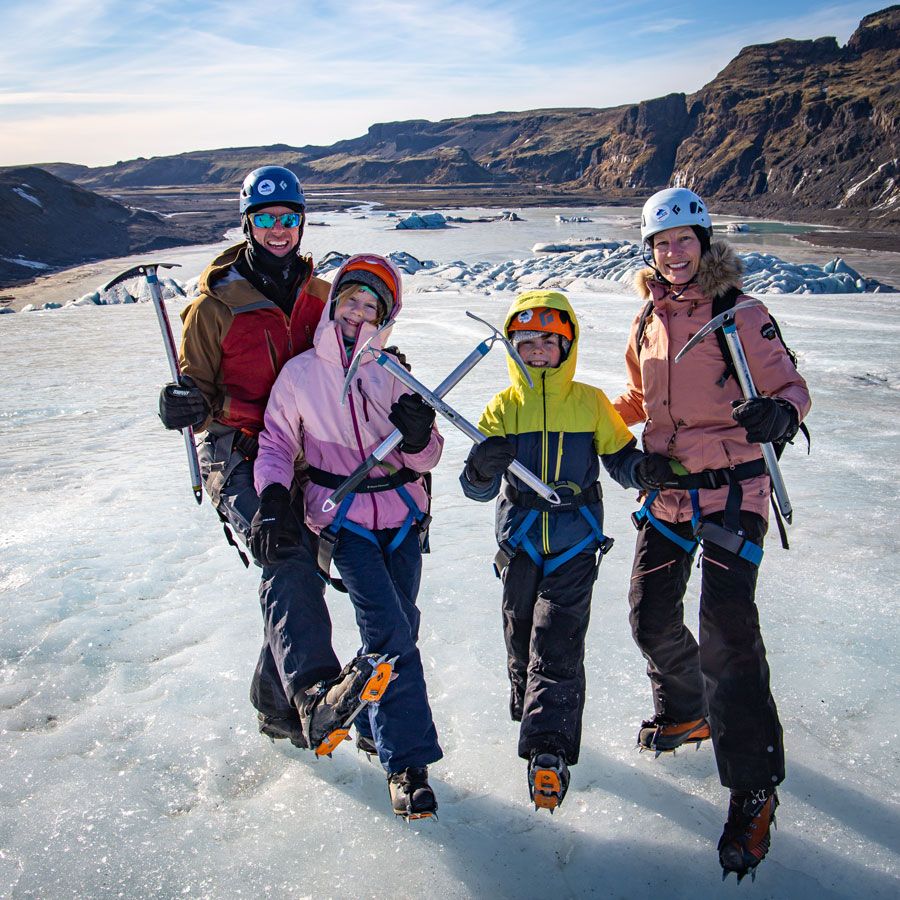
Written by Megin Potter | Photos provided
The wanderful life of a digital nomad family

When Doug and Marcy Duval took an extended two-month family trip to Mexico nearly a decade ago, they were just looking to get away from the grayness of winter in New York’s Finger Lakes.
When they returned, they decided to travel full-time. After loading up their newly acquired Sportsmobile 4x4 Adventure Van, the couple and their two children, Morgan, 4, and Derek, 2, headed out on what was to become the adventure of a lifetime.
“We just thought, let’s go and do this,” said Doug. Migrating with the weather, they spent the winter in Mexico and the summer in the north, travelling through the country’s national parks and into Canada. Then the Duvals thought, let’s just keep going.
“We never set out to be full-time travelers,” continued Doug.
“Modern technology makes it possible to simultaneously work, school, and travel. It wasn’t an option in previous generations but since we had the ability to do it, if we didn’t, it would be our own fault.”
“We have the flexibility to jump when we want to jump.”
The Location-Independent Lifestyle
Boondocking in their van gave the Duvals the ability to go where most people cannot.
The family enjoyed the solitude and primitive experience of dispersed camping journeying away from campgrounds and other campers into those beautiful remote places where there are often no services or facilities.
Everything they needed was in the van, which Doug says is like a “Volkswagen Vanogon on steroids.”
Even when journeying off-road, its pop-up roof (which gives it the ability to sleep four) and kitchenette provide the camping essentials, while rooftop solar panels and an inverter let them live off the grid.
Being off the grid doesn’t mean they are unplugged. With Marcy’s travel-friendly medical education career, finding online connectivity is often their biggest challenge.
Learning on the Go
Since 2014, Morgan and Derek have been world-schooling and have never had a formal education at a public school. Experiencing, and interacting with, the world around them is their education.
“Their education is built around where we go and what we do when we’re there,” said Doug, who augments the learning style with a homeschool curriculum, videos, visits to local museums, and other attractions.
In addition to touring North America, they have been to Australia, Iceland, Indonesia, Malaysia, Singapore, and Thailand.
“It’s not like forcing a square peg in a round hole. Their learning is driven by their curiosity about the animals, nature, and cultures they are exposed to through travel,” he said.
Much of where and when the Duvals travel is determined by the people they meet.
It Takes a Village
As self-reliant as they are, the Duvals also enjoy traveling with others. Although they do not meet many families living a similar nomadic lifestyle, when they do, there is an instant bond, and they keep in touch.
In August 2020, at the height of the pandemic, the Duvals and several travel families, took a different approach: they set up camp outside of Yellowstone National Park and eventually the group grew into a gathering of 20 to 30 families. As the pandemic surged, they were able to enjoy one of the most beautiful places on the planet AND spend quality time with friends.
“We stayed ahead of Covid and stayed where it was beautiful,” said Doug. “The kids were in heaven.”
Because they were essentially isolated in the woods, the children were able to interact within a large group of all different ages, and continue to see their friends every day. The adults all took part in mentoring the children. For Doug, that meant teaching the boys to fly fish while Marcy led a few yoga classes.
After eight months of traveling with ‘the village,’ in March 2021, they drove back east to be closer to family.
Offsetting the Slomad Lifestyle
The logistics of traveling were sometimes fun and easy, said Doug, other times, a slog.
When they found themselves in situations that were new and fresh, it offset the tedium of planning.
What most people don’t understand about the Duvals’ lifestyle, said Doug, is that being mobile doesn’t mean they are living lavishly on vacation all the time.
“Our typical day to day routine looks pretty normal: there’s work, school, and daily chores.”
During peak medical conference season, Marcy works 60 to 80 hours a week. She’s also a contributor to Sara Tyler’s recent book, Digital Nomad Moms: Women who carved out successful remote careers to travel the world with their children.
The Duvals manage costs by living within their means. They typically spend more on their experiences (snorkeling, skiing, fishing, etc.) than their lodging. Many of the countries they visit have an exchange rate that makes the American dollar go a lot further, and while they do take advantage of fun food opportunities, they don’t eat out every day.
Family Wealth
After experiencing an endless array of people with completely different world views, what’s most striking for Doug when returning to the States is the abundance people here enjoy.
“Whenever we come back to America, I’m so proud to be an American. We have so much. It’s just amazing.”
The Duvals found their way to Saratoga because it is situated at an ideal spot near the wilderness of the Adirondacks and between the extended family they have in all directions. Doug and Marcy joke that until now, they’ve just been interviewing towns to live in.
“We will continue to travel but it’s good to have a home base,” said Doug. “There are not many places in the world like Saratoga, that have the economic ecosystem to thrive.”
“There’s a thriving downtown. Malls that are succeeding. Restaurants with food of all different flavors that are busy. In other places, it tends to be very seasonal. Saratoga seems to be above that. The calendars are filled with long lists of what’s going on. It’s endless.”

